SAN ANTONIO, Texas - For Col. Kenneth Moore, incoming commander of the 321st Civil Affairs Brigade, there's no better place to assume command of a U.S. Army unit than in front of a national landmark.
"I'm responsible for a U.S. military organization, and I was given its flag at the Alamo," Moore said following the 321's change of command ceremony the morning of Sept. 13 in downtown San Antonio. "This is truly an inspiring place." About 150 soldiers, guests and tourists watched Moore accept his new position as the sun rose from behind the Alamo, a symbol of Texan and American pride since the famous 1836 Texas Revolution battle.
Since 1971, the Alamo has been prominent in the 321's unit insignia, making it the first civil affairs unit's insignia to feature a national landmark.
Col. Michael Finn, the 321's acting commander since May, chose the Alamo as the site of the unit location as a tribute to the soldiers serving within the brigade.
"The best way to show you just how high I hold you in my esteem, and how you stand out in any group, is to conduct the ceremony in this, the most special of places," Finn said to his soldiers during the ceremony.
Finn, like most of the members in the brigade and throughout the U.S. Army Civil Affairs & Psychological Operations Command (Airborne), is an Army Reserve soldier with a civilian career. Rather than leaving the unit, Finn is returning to his original position as the brigade's deputy commander, making room for Moore to assume command on full-time orders.
"As I resume my place as the brigade's deputy commanding officer, let there be no doubt that the torch, as well as the flag, has been passed," Finn said. "He's the right guy, at the right time, to lead this brigade through the difficult and complex missions ahead of us."
Moore is coming to San Antonio from his assignment at the USACAPOC(A) headquarters at Ft. Bragg, N.C., where he led force development for the 12,000-member Army Reserve command.
"For most of us, things like force development are an abstraction, all we really know is that somewhere out there, they figure out all the hard stuff." said Brig. Gen. Mark Hendrix, commanding general of the 350th Civil Affairs Command, the 321's higher command. "For all of us in civil affairs, that was Colonel Moore."
"[Force development] is easy on a PowerPoint slide, but now I'm on the other end," Moore said. "I've got to implement what I've participated in designing for several years." At the command's headquarters, Moore worked closely on how civil affairs and psychological operations units can better employ doctrinal concepts, and helped forecast the training and equipment needs of those units.
Moore has been shaping the civil affairs force of tomorrow, Hendrix said.
"I was on the intellectual and academic side of designing all of this," he said. "Now, all of the sudden, I'm thrust into the execution side."
Together, Moore and Finn will take the brigade overseas to Afghanistan next summer.
"A lot of the transition over there really does need to focus on building the infrastructure," Moore said after the ceremony, explaining that coalition forces have been too busy looking for and fighting terrorists to do much more with civil-military operations. "Hopefully, we can really focus on the population, elections, governance and the public facilities that they really need."
The brigade has four subordinate battalions, in Dallas, Houston and Lubbock, Texas and Tulsa, Okla. While Moore and Finn are preparing to deploy the 321st, each of their battalions is also preparing to support overseas contingency operations.
"We're fighting wars in Iraq and Afghanistan," Hendrix said. "The Army needs this brigade to support both."
"God bless [the soldiers] for doing what they do, because what they do is complex and sometimes it's dangerous," Finn said. "We're the fingers that massage the hearts and minds, and sometimes fingers get cut and burned."
Civil affairs soldiers work with civil authorities and civilian populations in military areas of operation, supporting government operations, emergency actions and humanitarian assistance. By combining cultural awareness and language training with their civilian educations and backgrounds, civil affairs soldiers help foster stability for foreign populations by developing economic, education and infrastructure projects.
"I am not getting a fixer-upper," Moore said, referring to the 321st as the Army's premiere civil affairs brigade. "This unit is already at a certain level and it is my job to sustain its high standard."
Moore and Finn both credited that high standard to the brigade's outgoing command sergeant major.
"Command Sgt. Maj. Longsworth exemplifies everything a senior non-commissioned officer should be, know and do," Finn said. Following the change of command ceremony, Moore oversaw a change of responsibility ceremony where Longsworth handed the unit's the top enlisted position over to Sgt. Maj. Steve Quinones.
By the close of the ceremony, over 50 tourists stood behind Fort Sam Houston's U.S. Army Medical Command Band, watching the commanders take charge of their units while waiting to tour the landmark's historic walls.
"It meant a lot to the soldiers to do it at the Alamo," Moore said. "It sounds like it's going to become a tradition for the 321st."
Finn, who claims Texas as his "adopted state," said he draws inspiration and resolve from his association with Texas and the Alamo. "This is, in fact, the holiest ground for me," he said, "and I hope for you as well."
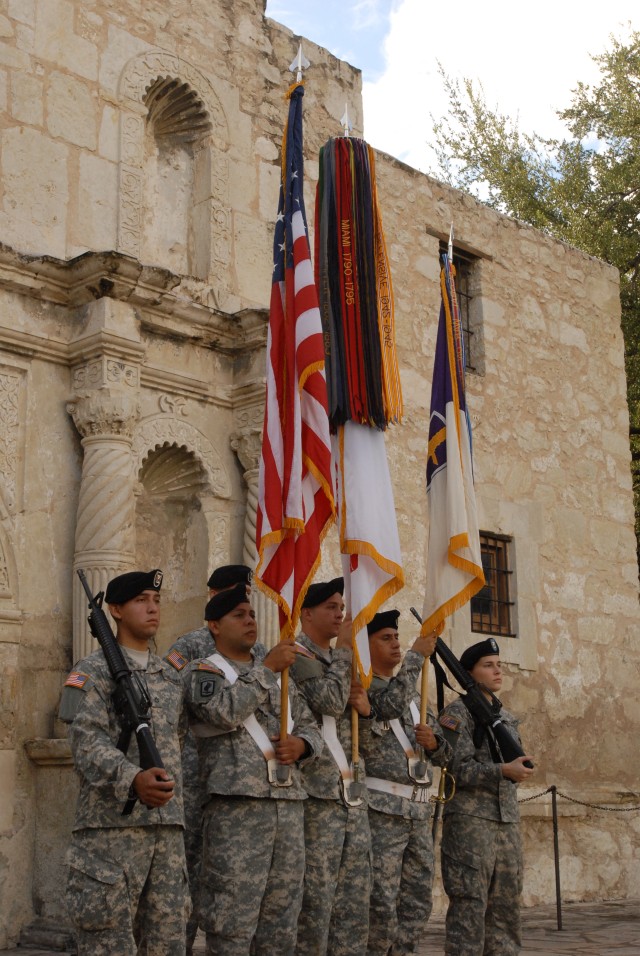
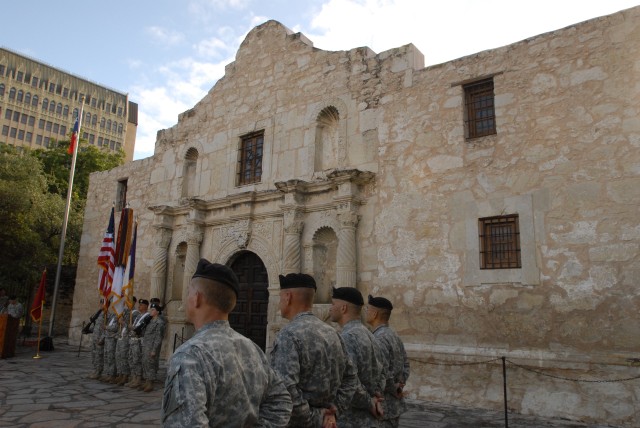
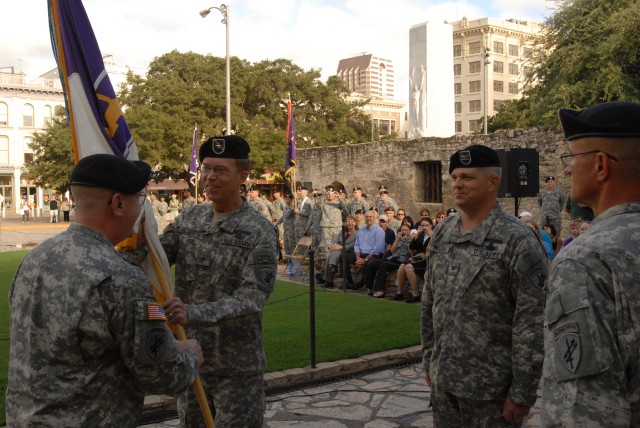
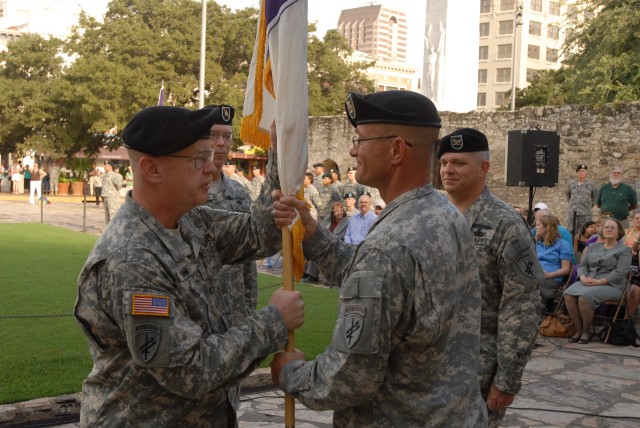
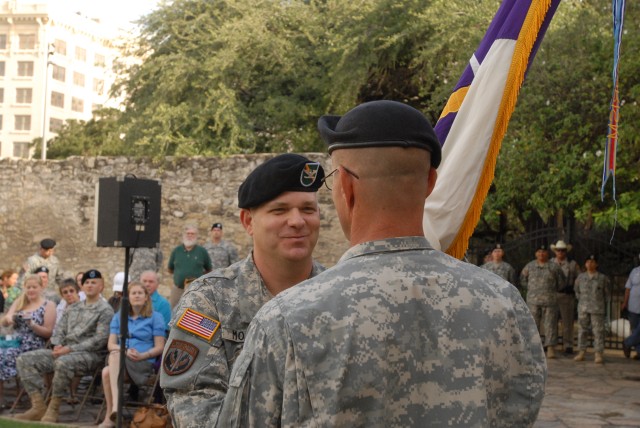
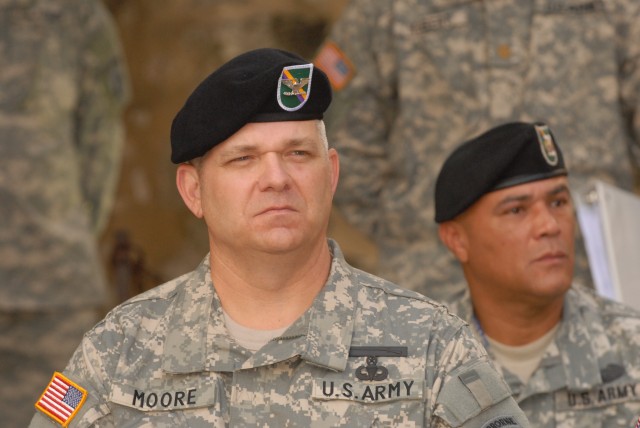
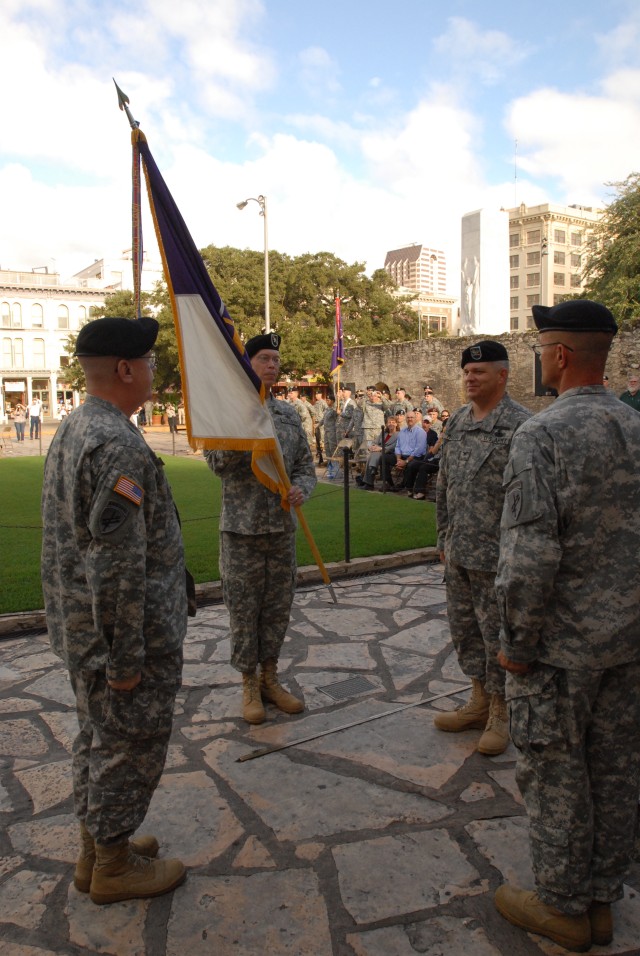

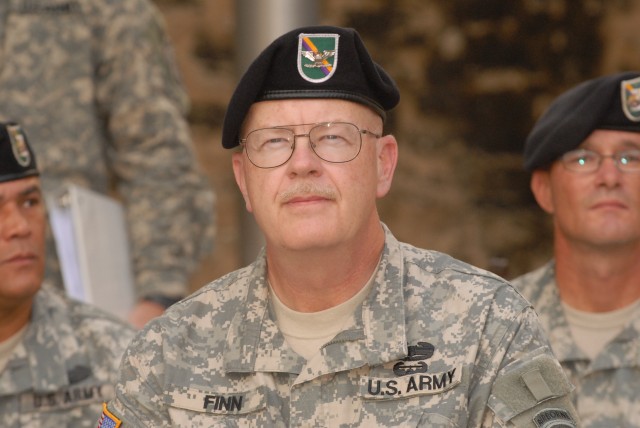
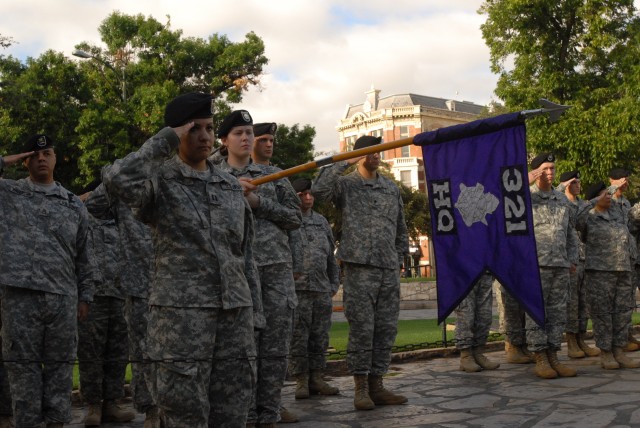
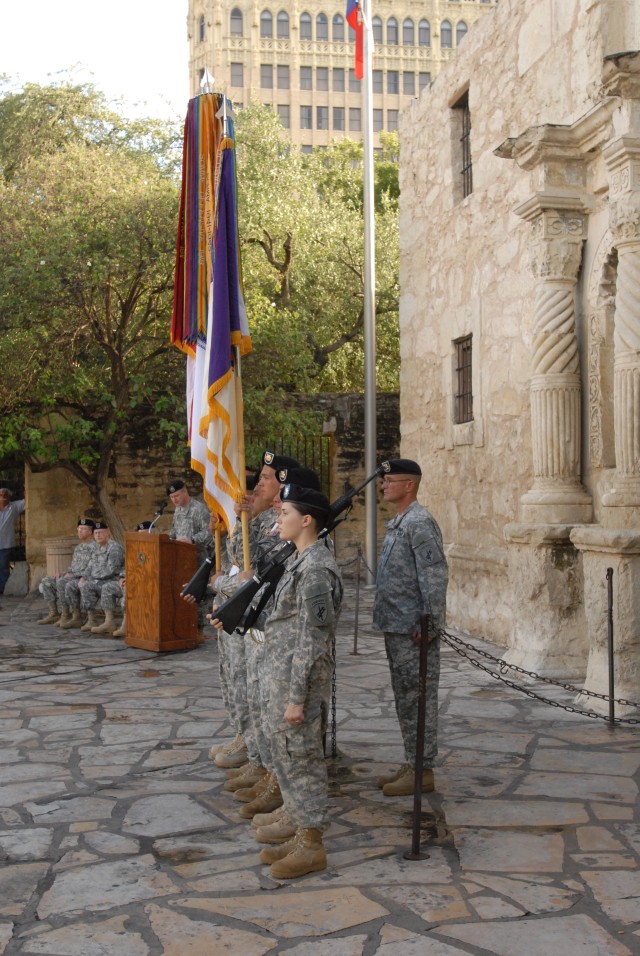
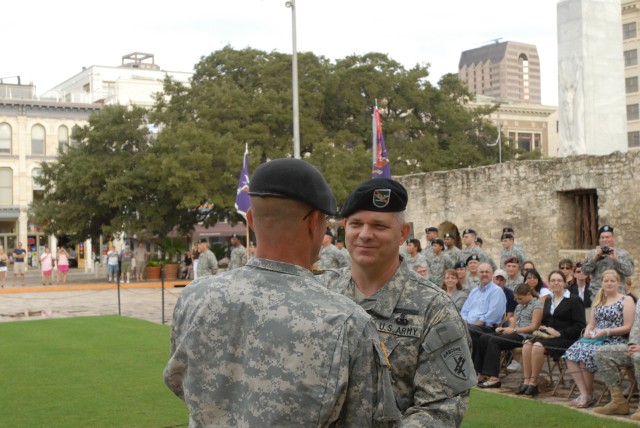

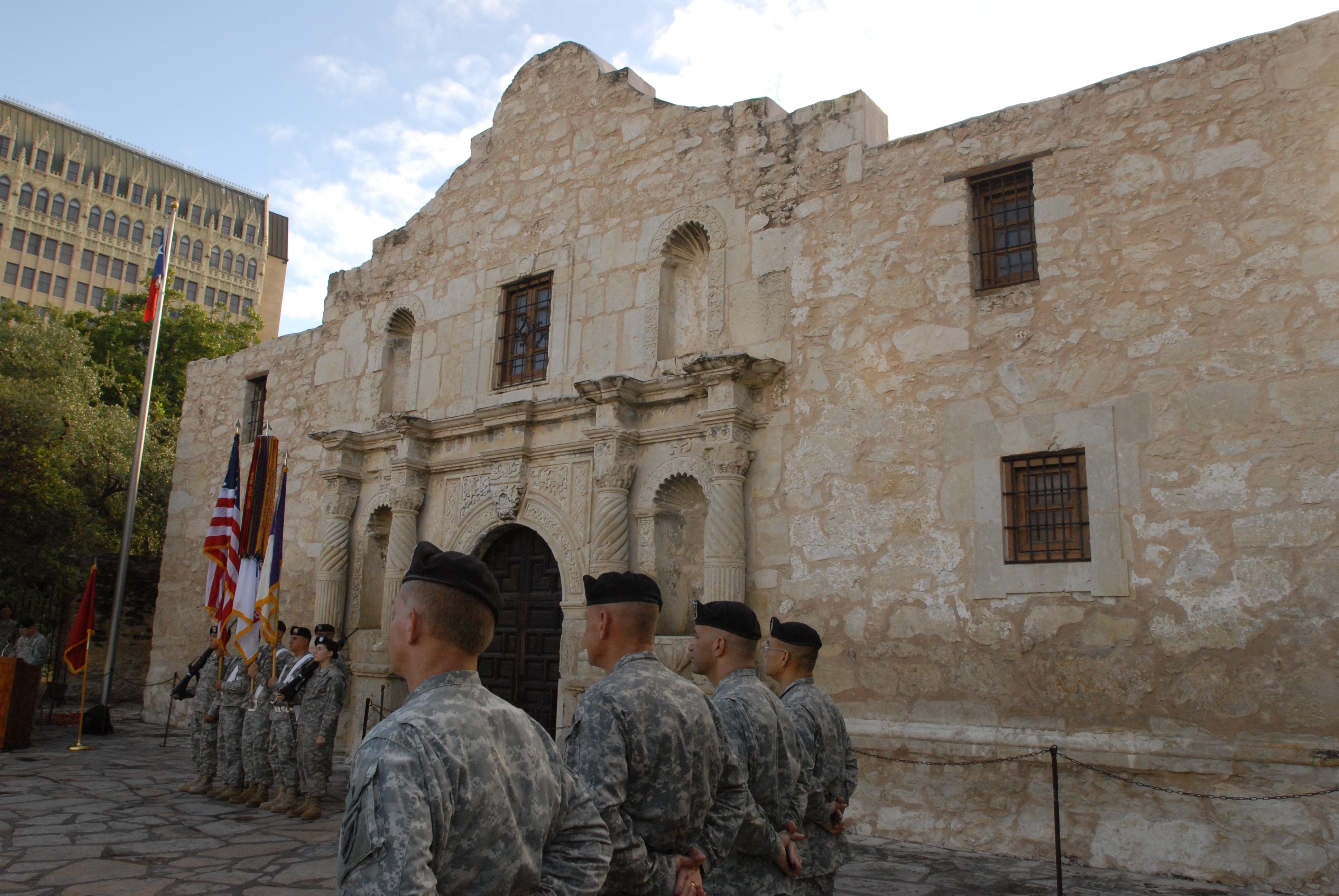



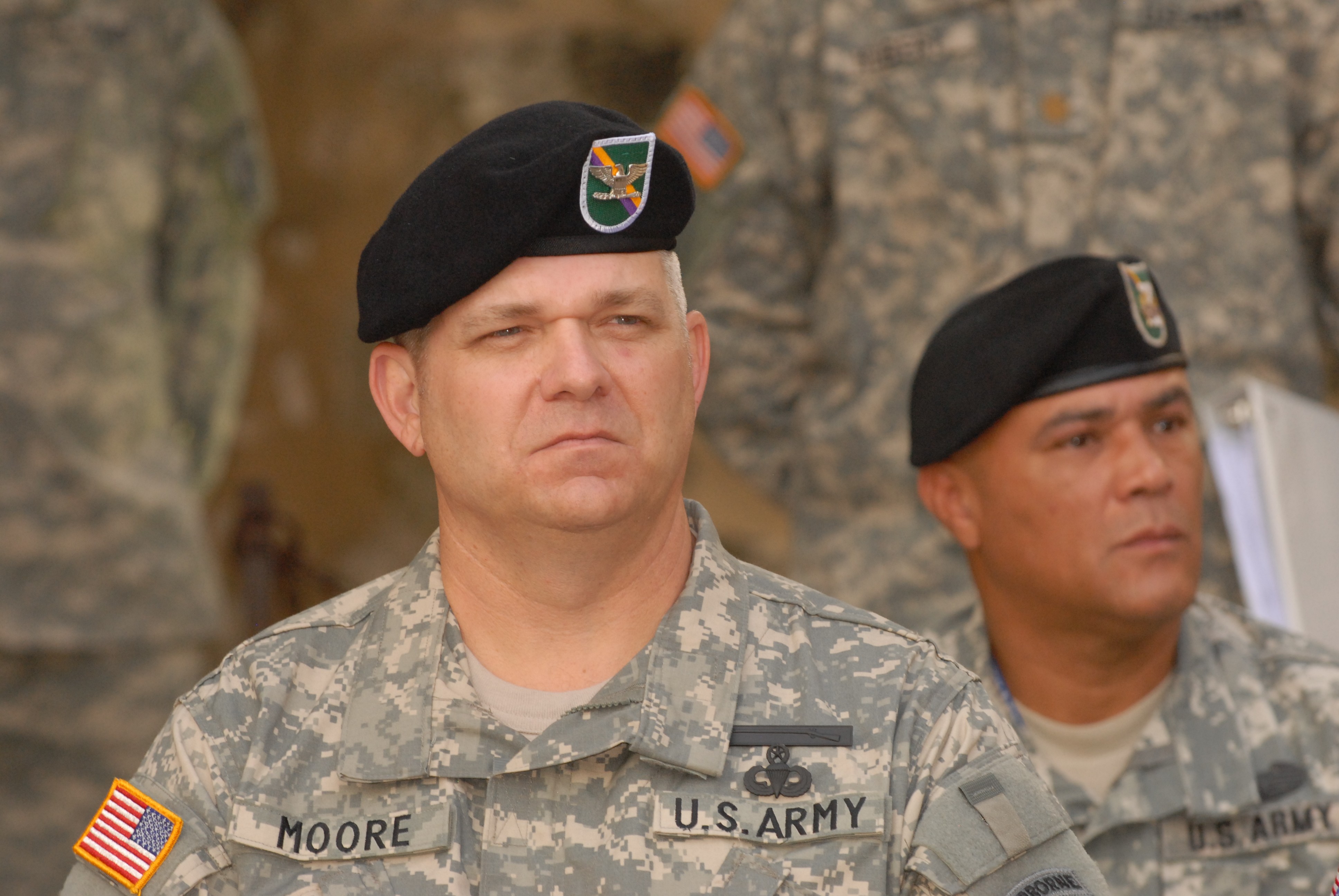




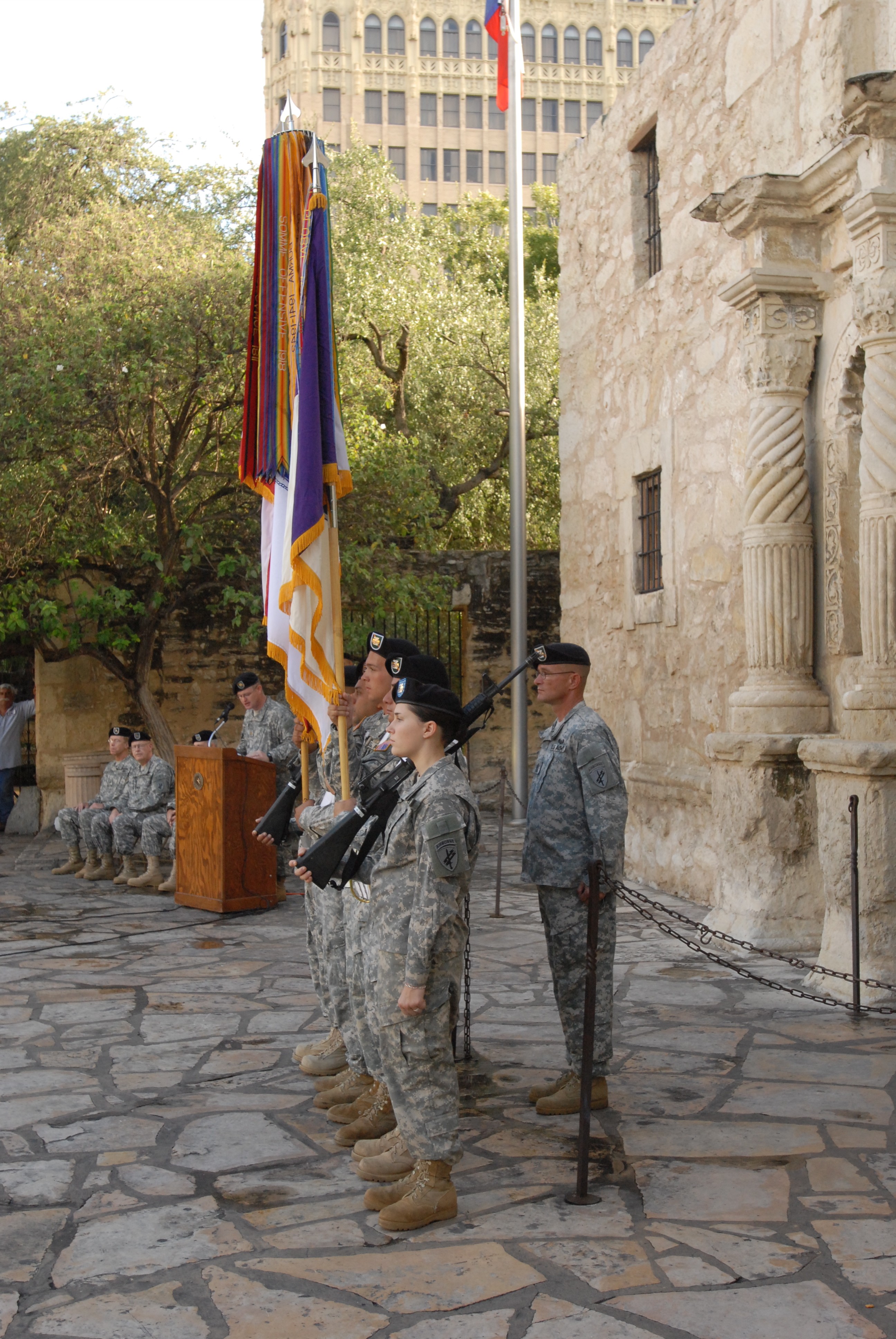

Social Sharing